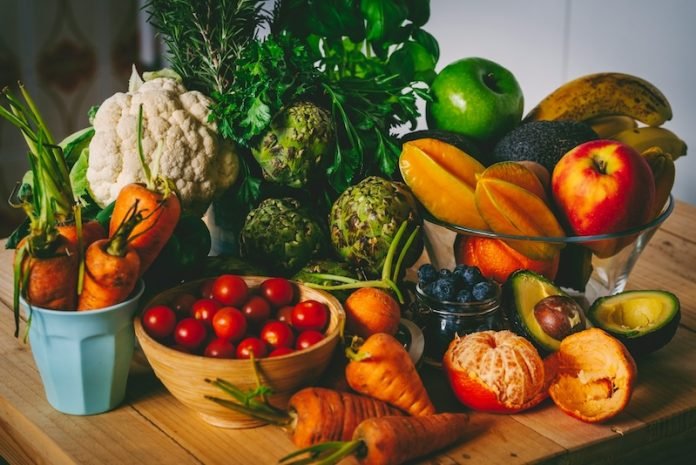
High blood pressure, or hypertension, is a common condition that can lead to serious health problems like heart disease and stroke if not managed properly.
Diet plays a crucial role in controlling blood pressure, and certain diets have been proven to be particularly effective. Let’s explore some of the best dietary approaches to manage high blood pressure.
One of the most well-known diets for lowering blood pressure is the DASH diet, which stands for Dietary Approaches to Stop Hypertension. The DASH diet emphasizes eating plenty of fruits, vegetables, whole grains, and lean proteins while reducing salt, red meat, and sweets.
Research has shown that the DASH diet can significantly reduce blood pressure, even within just a few weeks.
For example, a study funded by the National Institutes of Health found that people following the DASH diet experienced a notable drop in blood pressure compared to those on a typical American diet.
The diet is rich in potassium, calcium, and magnesium, which are nutrients known to help control blood pressure.
Another effective diet for managing high blood pressure is the Mediterranean diet. This diet is based on the traditional eating habits of people in countries like Greece and Italy.
It focuses on consuming healthy fats, such as olive oil, along with fruits, vegetables, whole grains, and moderate amounts of fish and poultry. Red meat and processed foods are limited.
Numerous studies have shown that the Mediterranean diet can lower blood pressure and improve heart health. One large study published in the New England Journal of Medicine found that people following the Mediterranean diet had a lower risk of heart attacks, strokes, and deaths from heart disease.
The diet’s high content of healthy fats, antioxidants, and fiber contribute to its blood pressure-lowering effects.
The plant-based diet is another approach that can help reduce high blood pressure. This diet emphasizes eating mostly plant-based foods like fruits, vegetables, legumes, nuts, and seeds while minimizing or eliminating animal products.
Research has demonstrated that plant-based diets can lower blood pressure and reduce the risk of heart disease. A study published in the Journal of Hypertension found that people who followed a vegetarian diet had lower blood pressure than those who ate meat.
The high fiber content and low levels of saturated fat in plant-based diets are key factors in their effectiveness.
Reducing sodium intake is a crucial aspect of any diet aimed at lowering blood pressure. Excess sodium can cause the body to retain water, which increases blood pressure.
The American Heart Association recommends consuming no more than 2,300 milligrams of sodium per day, with an ideal limit of 1,500 milligrams for most adults, especially those with high blood pressure.
Many processed and restaurant foods are high in sodium, so cooking at home using fresh ingredients and herbs for flavor can help reduce sodium intake.
In addition to these specific diets, certain foods have been shown to have blood pressure-lowering effects. For example, foods rich in potassium, such as bananas, potatoes, and spinach, can help balance the amount of sodium in your body and ease tension in your blood vessel walls.
Consuming foods high in magnesium, like nuts, seeds, and whole grains, can also help regulate blood pressure.
Dark chocolate and cocoa have also been studied for their potential to lower blood pressure. Flavonoids, which are compounds found in cocoa, can help dilate blood vessels and improve blood flow.
A review of studies published in the journal BMC Medicine found that consuming dark chocolate or cocoa products can lead to a small but significant reduction in blood pressure.
Beetroot and beetroot juice are other foods that have gained attention for their blood pressure-lowering properties. Beetroots are high in nitrates, which the body converts into nitric oxide, a compound that helps relax and widen blood vessels.
Research published in the journal Hypertension showed that drinking beetroot juice can lower blood pressure in people with hypertension.
In summary, managing high blood pressure through diet involves choosing foods that promote heart health and reduce pressure on your arteries. The DASH diet, Mediterranean diet, and plant-based diet are all excellent choices backed by research.
Reducing sodium intake and incorporating specific blood pressure-lowering foods like potassium-rich fruits and vegetables, dark chocolate, and beetroot can also help.
By making these dietary changes, you can take significant steps toward controlling your blood pressure and improving your overall health.
If you care about high blood pressure, please read studies about unhealthy habits that may increase high blood pressure risk, and drinking green tea could help lower blood pressure.
For more information about high blood pressure, please see recent studies about what to eat or to avoid for high blood pressure, and 12 foods that lower blood pressure.
Copyright © 2024 Knowridge Science Report. All rights reserved.



